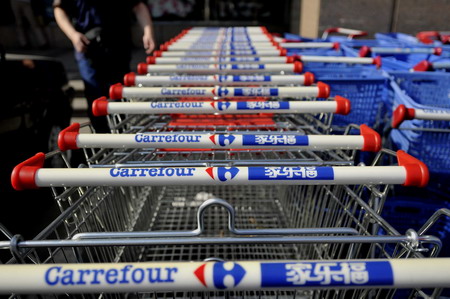BizChina
- Details
- By David Cao
- Hits: 1223
"Fashion fades, only style remains the same," says Jasper Liu, 26, summarizing his approach to shopping by quoting Coco Chanel.
Liu, a self-described "Shanghai Hipster," represents the nouveau riche of China. He reads English literature, watches European movies, drinks fine champagne and is a loyal patron of luxury retailers, namely Lanvin and Yves Saint Laurent.
The affection is mutual: Fashion houses with global ambitions are courting Chinese consumers like Jasper, eager to learn how they spend, why they spend and just how much they're willing to spend.
The answer: quite a lot if the quality and label are right. In a recent study by retail consulting firm Pao Principle, the average Chinese luxury consumer will spend roughly 11% of her income on luxury handbags alone. The group's favorite brands, in order of preference: Louis Vuitton, Gucci, Coach, Chanel and Prada.
Over the past year Patti Pao, the founder of Pao Principle, has collected data on the mainland's elite consumers: amassing a panel of 356 individuals who have purchased a luxury handbag, watch or fine jewelry piece in the last twelve months. Her snapshots of their habits create a portrait of a misunderstood luxury consumer who is highly educated and highly motivated to identify products that will complement his or her individuality and rising power.
- Details
- By David Cao
- Hits: 1175

American International Group shares were up more than 10% today, gaining along with many other financials, including Citigroup and Regions Financial.
China Southern Airlines is gaining today after yesterday's announcement that it would be doing an offering to repay debt. Currently shares are up nearly 9%.
- Details
- By David Cao
- Hits: 1088

The richest man in China, beverage baron Zong Qinghou of Wahaha Group is ranked No. 103 on the global list of billionaires compared with No. 376 previously. Zong is worth $7 billion, compared with $1.9 billion last year.
Only a few years ago, an ugly legal dispute between China’s beverage giant Wahaha and joint venture partner Danone over the right to use the Wahaha brand had brought a cloud over both in China. With the dispute resolved last year, Wahaha is well-positioned to turn its attention to new products. Forbes talked to Chairman Zong in his office in China’s eastern city of Hangzhou about this year’s business outlook, new products and succession. Excerpts follow.

What’s the growth outlook for China’s beverage industry this year?
Zong Qinghou: The market will continue to grow more than 20%. The market has become concentrated--about five companies--Wahaha, Coke, Pepsi, Tingyi and President have more than half, and if you add in about 10 more firms, the total is 80%. The bigger companies will have a larger and larger market shares. Also, more and more companies will be looking to differentiate their product. China already has one of the largest number of drink varieties in the world, and this will continue.
- Details
- By Mengxin
- Hits: 861

GM's Buick display area in 2007 Shanghai Expo in the file photo taken in 2007.
Although it is facing the biggest challenge worldwide in its century old history, General Motors has found the Chinese market is giving it a glimpse of hope for business survival.
Last year, the US auto firm harvested record profits in China, benefiting from the robust economic growth in the country.
The US automaker reported 1.83 million units sold across the country, an increase of 67 percent from the previous year.
It compared with a 46 percent year-on-year increase for China's total automobile sales in 2009, spurred by the Chinese government's prompt stimulus package for the automobile industry amid global stagnation. The stimulus included halving taxes on smaller cars with an engine capacity of or less than 1.6-liters and subsidies for trading in old vehicles.
- Details
- By Mengxin
- Hits: 956

A row of Carrefour shopping trolleys at the entrance to a Beijing outlet of the French retailer.
Retailer embarks on strategic expansion on the back of high sales
It's 1 am one day during this year's Spring Festival and hundreds of consumers are on a shopping spree, waiting in long queues, trolleys piled high with goods, at Carrefour's Tiantongyuan outlet in the Changping district of northern Beijing.
The night time craze was symbolic of the retail giant's strong performance in China. Claudio Gouveia, vice-president of Carrefour China and also general manager of the North Territory of Carrefour China, said the country has become one of the most significant and also fastest-growing markets for the retailer.
More Articles …
Page 64 of 120